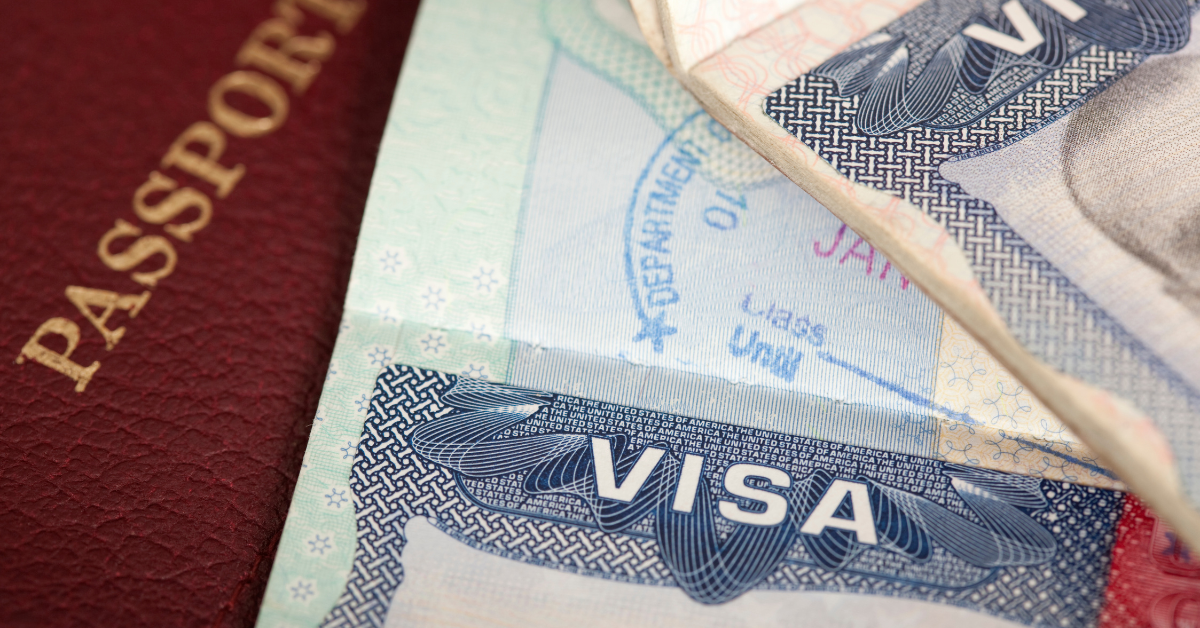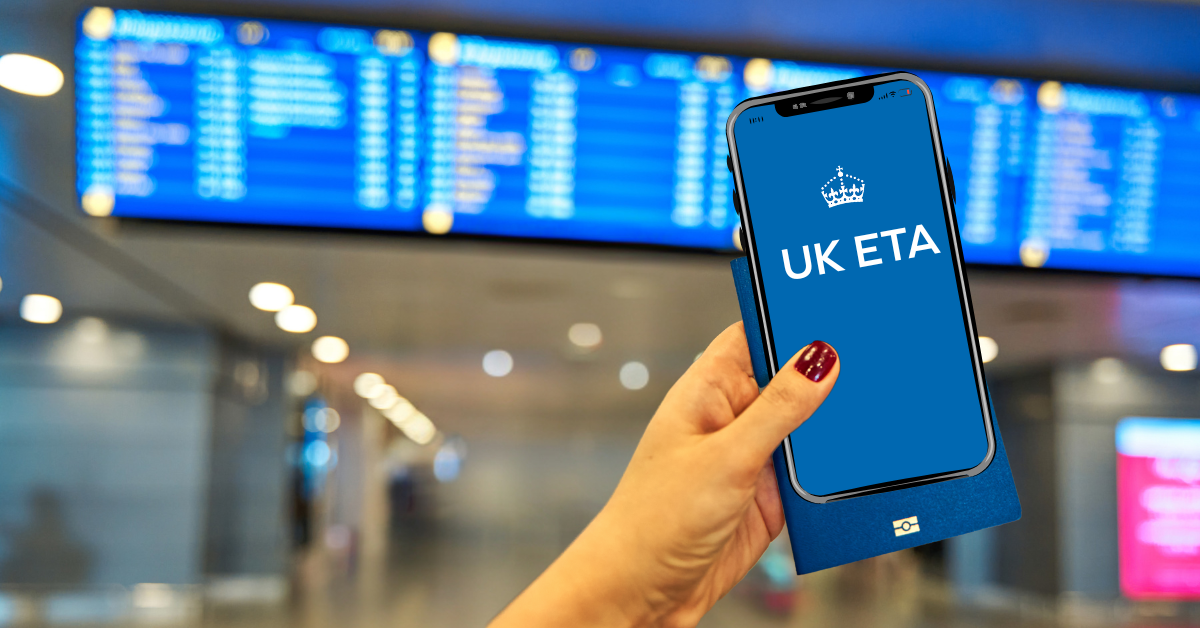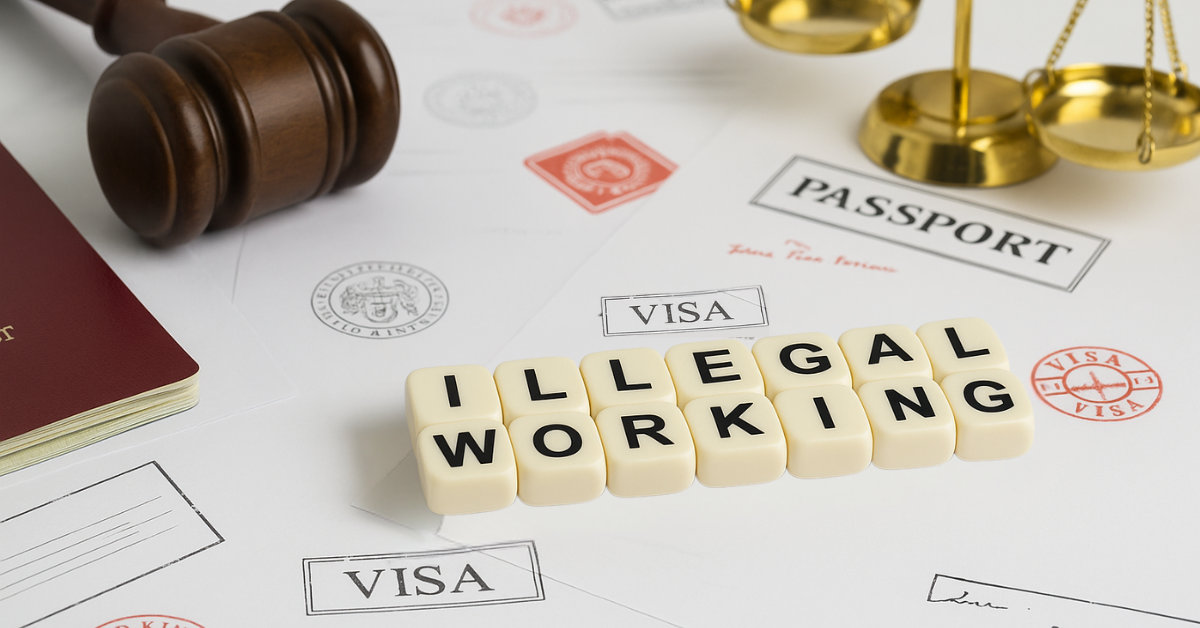
Working on a UK visa
Many visas allow people to work in the UK, but did you know that some visas have restrictions over what jobs you can do and how many hours you can work?
Paragon Law
Working in the UK
There are many UK visas which enable individuals to work in the UK. However, with that in mind, many of these visas do have some restrictions. In this article we will be focusing on the following UK visas:
Can I get a UK work visa without a job offer?
Yes, some of the UK work visas listed in this article do not require you to have secured a job offer in the UK. However, please be aware that each UK work visa listed has its own eligibility requirements which must be met, and so, it is important that you look at the individual requirements.
What does ‘Dependents Restrictions Work No Sportsperson’ mean?
‘Dependents Restrictions Work No Sportsperson’ simply means that whilst you are permitted to work in the UK, you cannot work as a professional sportsperson or sports coach.
Can you work in the UK on a Student visa?
The UK Student visa allows applicants over the age of 16 to come to the UK to study a course with a licensed student sponsor. In addition to being able to study in the UK, individuals with a Student visa are able to work in the UK, however, there are restrictions over their working hours.
Student visa working hours
Studying a degree-level course or above
If you are in the UK on a Student visa and are studying a degree-level course or higher then you can work for a maximum of 20-hours per week during term time. This 20-hour restriction is the total of all the hours worked across all jobs and volunteering activities. Therefore, if you work 15-hours a week somewhere then you are free to work or volunteer an additional 5-hours elsewhere. Whereas, if you work 20-hours a week at one place then you are not able to pick up work or volunteer elsewhere.
Outside of term time (e.g. holidays) there are no restrictions on how many hours you can work.
It is your responsibility to manage the amount of hours you work and it is your responsibility to inform your employer(s) if you pick up hours elsewhere so that they can manage their rota accordingly. Failure to comply with the restrictions of the Student visa may result in you losing your status in the UK and your employer may face severe consequences.
Studying below degree level
If you are in the UK on a Student visa and are studying below degree-level then you can work for a maximum of 10-hours per week during term time. This 10-hour restriction is the total of all the hours worked across all jobs and volunteering activities. Therefore, if you work 5-hours a week somewhere then you cannot do more than 5 hours work elsewhere. Whereas, if you work 10-hours a week at one place then you are not able to pick up work or volunteer elsewhere.
Outside of term time (e.g. holidays) there are no restrictions on how many hours you can work.
It is your responsibility to manage the amount of hours you work and it is your responsibility to inform your employer(s) if you pick up hours elsewhere so that they can manage their rota accordingly. Failure to comply with the restrictions of the Student visa may result in you losing your status in the UK and your employer may face severe consequences.
What do you mean by ‘outside of term time’?
‘Outside of term time’ refers to any vacation period. You must refer to your education institution’s term dates to find out what your vacation periods are.
‘Outside of term time’ also refers to the period (usually 4 or 6 months) after you have officially completed your course.
Type of work
The Student visa allows students to do a range of jobs, however, students cannot:
-
Be self-employed.
-
Work as a professional sportsperson or coach.
-
Engage in business activity.
-
Take employment as an entertainer.
-
Fill a full-time permanent vacancy other than a recognised foundation programme or as a Student Union Sabbatical Officer.
Salary
There is no minimum salary requirement which a graduate needs to satisfy. However, the National Minimum Wage still applies.
Information for employers: Right to work checks and the Student visa
When employing an individual on a Student visa (and every employee) it is important that a right to work check is conducted to ensure that they have permission to work in the UK. Information about right to work checks can be found here.
However, in addition to obtaining the relevant right to work documents and carrying out the right to work check it is important that you obtain a letter from the student’s education institution which outlines the following information:
-
Their name.
-
Their course.
-
Their term time dates.
This letter must be obtained at the start of every academic year and by obtaining it you are able to see when the 10 or 20-hour restrictions apply and plan accordingly.
To read more about the Student visa head over to our dedicated page.
Can you work on a Graduate visa?
The Graduate visa allows individuals who were in the UK on a Student visa to continue to stay in the UK after their studies. The Graduate visa allows individuals to work and live in the UK and it has fewer employment restrictions than the Student visa.
Type of work
Individuals with a Graduate visa can undertake virtually any kind of work in the UK (including self-employment): the only restriction placed on individuals is that they cannot work in the UK as a professional sportsperson. The job(s) undertaken do not have to be related to the graduate’s degree of qualification.
Working hours
Unlike the Student visa, there is not a restriction on the number of hours which an individual on a Graduate visa can work or volunteer.
Salary
There is no minimum salary requirement which a graduate needs to satisfy. However, the National Minimum Wage still applies.
Information for employers: Right to work checks and the Graduate visa
When employing an individual on a Graduate visa (and every employee) it is important that a right to work check is conducted to ensure that they have permission to work in the UK. Information about right to work checks can be found here.
If you have an employee who is looking to make the switch from the Student visa to the Graduate visa then it is important that you know when they apply for the Graduate visa. Once you know this information you will then need to carry out an Employer Checking Service check (ECS check) in order to confirm whether this application has been made in-time. If the ECS check confirms this, then you will have a statutory excuse to continue to employ the individual for a further six months. However, once the individual receives their biometric residence permit (BRP) you will be required to conduct a right to work check.
To read more about the Graduate visa head over to our dedicated page.
Working on a High Potential Individual visa (HPI visa)
The High Potential Individual visa enables graduates from some of the top universities around the world to come to the UK to work and live. Individuals are not required to have a job offer prior to applying for the visa or arriving in the UK.
Type of work
Individuals with a High Potential Individual visa can undertake virtually any kind of work in the UK (including self-employment): the only restriction placed on individuals is that they cannot work in the UK as a professional sportsperson. If an individual chooses to work in the UK then their employer is not required to sponsor them.
Working hours
There is not a restriction on the number of hours which an individual on a HPI visa can work or volunteer.
Salary
There is no minimum salary requirement which an individual needs to satisfy. However, the National Minimum Wage still applies.
Information for employers: Right to work checks and the HPI visa
When employing an individual on a HPI visa (and every employee) it is important that a right to work check is conducted to ensure that they have permission to work in the UK. Information about right to work checks can be found here.
To read more about the High Potential Individual visa head over to our dedicated page.
Working on a Global Talent visa
The Global Talent visa allows established and promising individuals in the fields of science, technology, engineering, arts, and the humanities to come to the UK and work.
Type of work
Individuals with a Global Talent visa can undertake virtually any kind of work in the UK (including self-employment): the only restriction placed on individuals is that they cannot work in the UK as a professional sportsperson. If an individual chooses to work in the UK then their employer is not required to sponsor them.
Working hours
There is not a restriction on the number of hours which an individual on a Global Talent visa can work or volunteer.
Salary
There is no minimum salary requirement which an individual needs to satisfy. However, the National Minimum Wage still applies.
Information for employers: Right to work checks and the Global Talent visa
When employing an individual on a Global Talent visa (and every employee) it is important that a right to work check is conducted to ensure that they have permission to work in the UK. Information about right to work checks can be found here.
To read more about the Global Talent visa head over to our dedicated page.
Working on a Youth Mobility visa
The Youth Mobility visa allows individuals aged between 18 and 30 years old to come to the UK to ‘experience life in the UK’. As part of this ‘experience’, individuals with this visa are able to work in the UK, however there are restrictions on what kind of work can be undertaken in the UK.
Type of work
Individuals with a Youth Mobility visa can undertake a wide range of work whilst in the UK, however, there are some restrictions:
-
Individuals cannot work in the UK as a professional sportsperson.
-
Individuals can be self-employed in the UK. However, the individual cannot own a business premise (except from their home), the cost of all their equipment (combined) cannot exceed £5,000, and they cannot employ additional employees.
Working hours
There is not a restriction on the number of hours which an individual on a Youth Mobility visa can work or volunteer.
Salary
There is no minimum salary requirement which an individual needs to satisfy. However, the National Minimum Wage still applies.
Information for employers: Right to work checks and the Youth Mobility visa
When employing an individual on a Youth Mobility visa (and every employee) it is important that a right to work check is conducted to ensure that they have permission to work in the UK. Information about right to work checks can be found here.
To read more about the Youth Mobility visa head over to our dedicated page.
Working on a Skilled Worker visa
The Skilled Worker visa allows individuals to come and work in the UK to work for an approved employer in an eligible job. Individuals must have secured a job offer before applying for the visa and arriving in the UK.
Type of work
To be eligible for a Skilled Worker visa, individuals must have secured a job offer for a job which meets the eligibility requirements as laid out here and subsequently be sponsored by an approved sponsor. Due to this sponsorship it means that individuals in the UK on a Skilled Worker visa can only work for the sponsor in the job which is recorded on the certificate of sponsorship (but see below to read more additional jobs). Therefore,this means that if an individual wishes to switch jobs in the UK then their new employer must have a sponsor licence and be willing to sponsor them.
However, individuals with this visa can:
-
Carry out voluntary work.
-
Work their contractual notice period if they were lawfully working in the UK before applying for the Skilled Worker visa.
-
Work up to 20-hours in a job which is either the same occupation code and skill level as their main job or in a job which is featured on the list of shortage occupations. You can read more about this additional work here.
Working hours
There is not a restriction on the number of hours which an individual on a Skilled Worker visa can work or volunteer.
Salary
Individuals with a Skilled Worker visa must receive a salary of at least £25,600 or the ‘going rate’ of their occupation code - whichever is higher.
Information for employers: Right to work checks and the Skilled Worker visa
When employing an individual on a Skilled Worker visa (and every employee) it is important that a right to work check is conducted to ensure that they have permission to work in the UK. Information about right to work checks can be found here.
To read more about the Skilled Worker visa head over to our dedicated page.
Working on a Scale-up visa
The Scale-up Worker visa allows individuals to work in the UK for an eligible ‘scale-up business’. A ‘scale-up’ business is one in which the UK Government has deemed as being a fast-growing UK business.
Type of work
To be eligible for a Scale-up Worker visa, individuals must have secured a job offer from a scale-up business. For the first six months of having this immigration permission, individuals must be employed in the job recorded on their certificate of sponsorship. After this six month period individuals are free to leave their job and switch employers or jobs without requiring sponsorship. Additionally, after this six month period individuals are free to become self-employed and are free to volunteer in the UK. However, individuals cannot work in the UK as a professional sportsperson.
Working hours
There is not a restriction on the number of hours which an individual on a Scale-up visa can work or volunteer.
Salary
Individuals with a Scale-up visa must receive a salary of at least £33,000 or the ‘going rate’ of their occupation code - whichever is higher.
Information for employers: Right to work checks and the Scale-up Worker visa
When employing an individual on a Scale-up visa (and every employee) it is important that a right to work check is conducted to ensure that they have permission to work in the UK. Information about right to work checks can be found here.
To read more about the Scale-up visa head over to our dedicated page.
How can Paragon Law help?
At Paragon Law, our immigration solicitors and lawyers have supported many individuals to successfully work in the UK. Our legal experts understand UK visas and immigration routes and understand what is needed to make the strongest application possible. If you require assistance with UK immigration then please contact us to arrange a consultation with an expert immigration lawyer.
Subscribe for updates

UK Visa Processing Times
Not ready to talk? Our free immigration resources may have the answer to your questions
%20Visa%20Update%20New%20Route%20for%20Adult%20Children.png)
Hong Kong BN(O) Visa Update: New Route for Adult Children
%20(1).png)
British Citizenship Application: Requirements & Process (2026)
.png)
A Fairer Pathway to Settlement: UK Earned Settlement Explained

UK ETA Enforcement from 25 February 2026: What Travellers Need to Know

Global Talent Visa: Eligibility, Requirements and Application Process

Border Security, Asylum and Immigration Act 2025 – What Employers Need to Know
.png)
UK Immigration Rule Changes 2025: Visa and Settlement Reforms Explained
%20What%20Sponsors%20Need%20to%20Know%20(1).png)
Upcoming Increase to the Immigration Skills Charge (ISC): What Sponsors Need to Know




